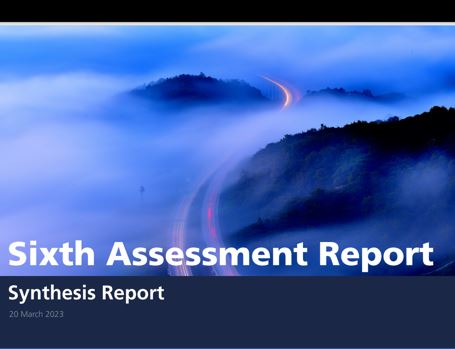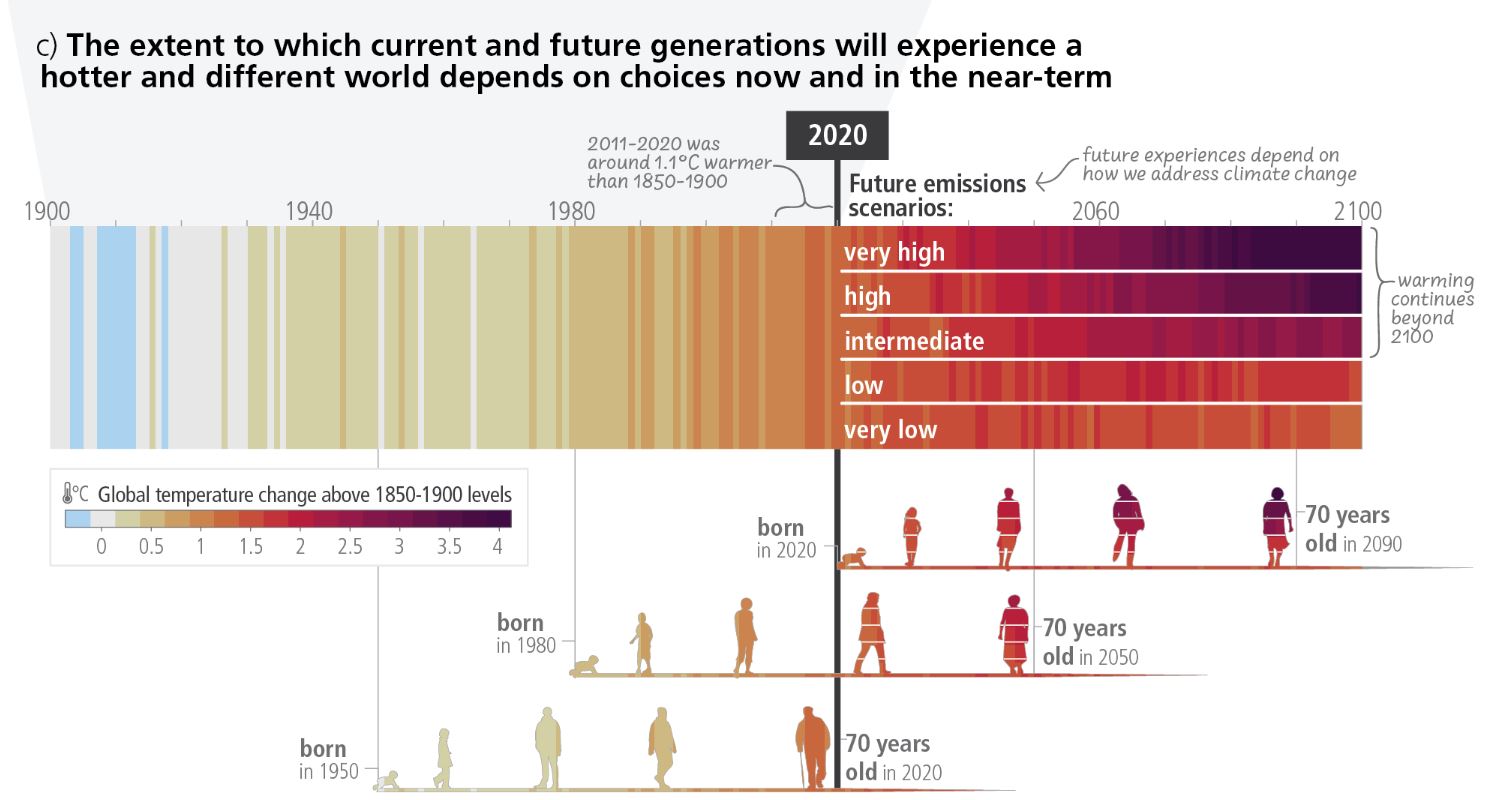
Date: 21 Mar 2023
"Humanity is on thin ice - and that ice is melting fast"
The latest report by the IPCC (Intergovernmental Panel on Climate Change) confirms that, with global warming having already reached 1.1°C above pre-industrial levels, climate change is causing widespread and increasingly irreversible losses and damages. Five years after it highlighted the "unprecedented scale" of keeping global warming to 1.5C, that challenge has become even greater due to a continued increase in greenhouse gas emissions with a rapidly closing window of opportunity to maintain a liveable future for all.
Today’s Synthesis Report integrates the three Working Group reports (physical science basis; impacts, adaptation and vulnerability; and, mitigation) as well as the findings from the three cross-Working Group Special Reports prepared during this assessment cycle.
The report finds that more than a century of burning fossil fuels as well as unequal and unsustainable energy and land use has led to global warming of 1.1°C above pre-industrial levels.
This has resulted in more frequent and more intense extreme weather events and brings in to sharp focus the losses and damages we are already experiencing and will continue into the future, hitting the most vulnerable people and ecosystems especially hard. When the risks combine with other adverse events, such as pandemics or conflicts, they become even more difficult to manage.
Every increment of warming results in rapidly escalating hazards abd today’s report clearly reinforces the message that the time to act is now.
“Mainstreaming effective and equitable climate action will not only reduce losses and damages for nature and people, it will also provide wider benefits,” said IPCC Chair Hoesung Lee. “This Synthesis Report underscores the urgency of taking more ambitious action and shows that, if we act now, we can still secure a liveable sustainable future for all.”

Some headline statements:
- Climate change is a threat to human well-being and planetary health (very high confidence). There is a rapidly closing window of opportunity to secure a liveable and sustainable future for all (very high confidence). Climate resilient development integrates adaptation and mitigation to advance sustainable development for all, and is enabled by increased international cooperation including improved access to adequate financial resources, particularly for vulnerable regions, sectors and groups, and inclusive governance and coordinated policies (high confidence). The choices and actions implemented in this decade will have impacts now and for thousands of years (high confidence)
- For any given future warming level, many climate-related risks are higher than assessed in AR5, and projected long-term impacts are up to multiple times higher than currently observed (high confidence). Risks and projected adverse impacts and related losses and damages from climate change escalate with every increment of global warming (very high confidence). Climatic and non-climatic risks will increasingly interact, creating compound and cascading risks that are more complex and difficult to manage (high confidence).
- Adaptation options that are feasible and effective today will become constrained and less effective with increasing global warming. With increasing global warming, losses and damages will increase and additional human and natural systems will reach adaptation limits. Maladaptation can be avoided by flexible, multi-sectoral, inclusive, long-term planning and implementation of adaptation actions, with co-benefits to many sectors and systems. (high confidence)
Further details including press release, slide decks etc. are available HERE.